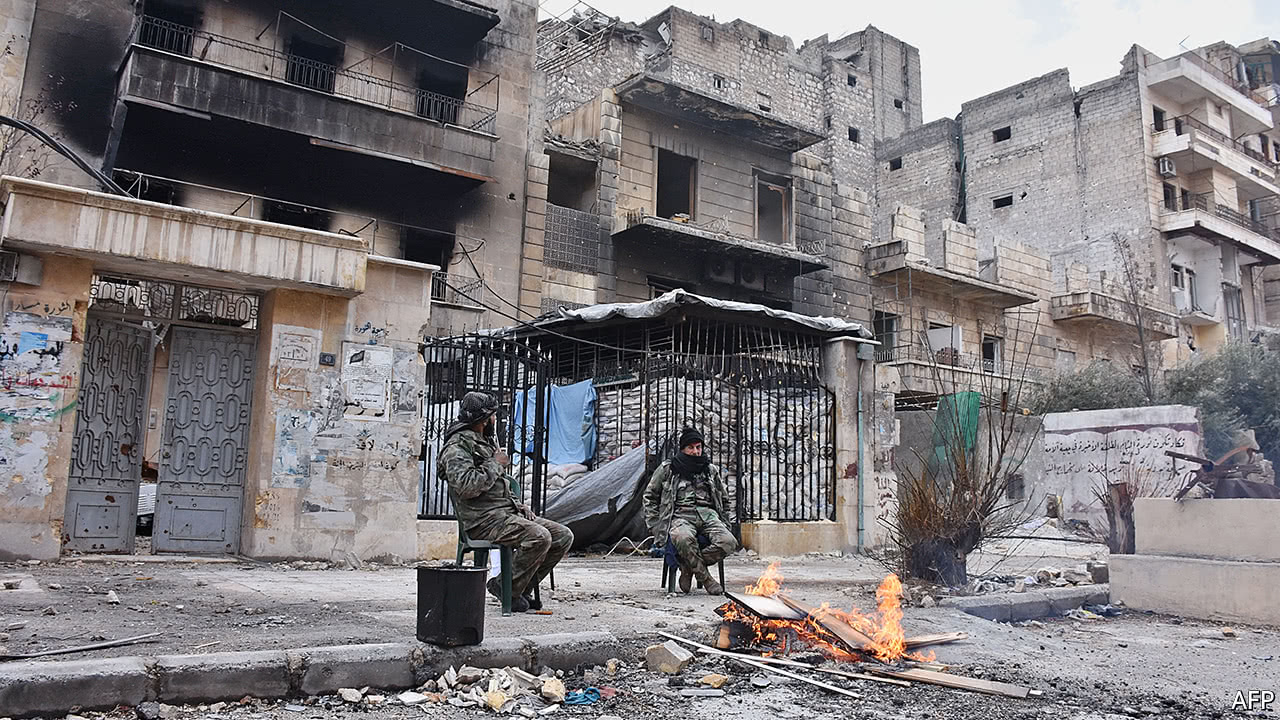
'Yousof Akasheh, a rebel fighter, was astonished to find out that the regime of Bashar al-Assad in Syria was planning to seize his wife’s property. For one thing, she is dead, killed three years ago when a warplane bombed her apartment block. For another, she never owned property.
Such is the arbitrariness of the regime’s counter-terrorism court, which has branded tens of thousands of opponents of Mr Assad enemies of the state and sent them to the country’s hellish prisons. Those lucky enough to escape arrest are tried in absentia. As punishment, the court routinely seizes their property.
The civil war in Syria has driven more than 12m people from their homes, contributing to the largest refugee crisis in recent history. But in his typically appalling way, Mr Assad has spied opportunity amid the tragedy. “We have lost the best of our young people…but in return we have gained a healthier and more harmonious society,” the dictator said in August of a war that has killed more than 400,000 of his countrymen.
Mr Assad is determined to keep it that way by making it exceedingly hard for those who have left to return to their homes. Property registries have been deliberately bombed, title deeds are seized at military checkpoints and new laws have been passed to make it easier for the regime to grab land, businesses and homes. In some parts of the country the regime has rewarded loyalists with property confiscated from its opponents. In other parts, bulldozers have simply flattened neighbourhoods that sided with the rebels. Large tracts of public land in cities are also quietly slipping into the hands of officials and connected businessmen.
Some of Syria’s poorest areas, where many of the first anti-regime protests flared in 2011 and where most of the destruction has occurred, will be rebuilt without their unruly residents. The regime hopes to move forward with projects that were deeply unpopular before the war, raising skyscrapers, hotels and restaurants from the rubble. Lacking enough cash of its own, it has passed laws to encourage private investors to pay for the reconstruction. But few investors will build residences if there are no people to live in them.
Half of Syria’s pre-war population is scattered. Many have already sought new homes abroad, away from a ruler who has systematically bombed, starved and tortured his own people. Even if the displaced return to their neighbourhoods, few will be able to afford the regime’s housing, exacerbating inequality that has grown worse during the conflict. Experts predict that 2m lawsuits will be filed after the war by people seeking restitution for damaged or stolen property. The courts may buckle under the burden.
The regime is not the only side to have grabbed land during the war. Kurds in northern Syria have claimed Arab lands freed from the Islamic State group, which itself used stolen property to buy loyalty. “The destabilising potential of all this is pretty fearsome,” says Rhodri Williams of the International Legal Assistance Consortium. “Few things stay in the minds of people longer than the property that was taken away from them.” '
No comments:
Post a Comment